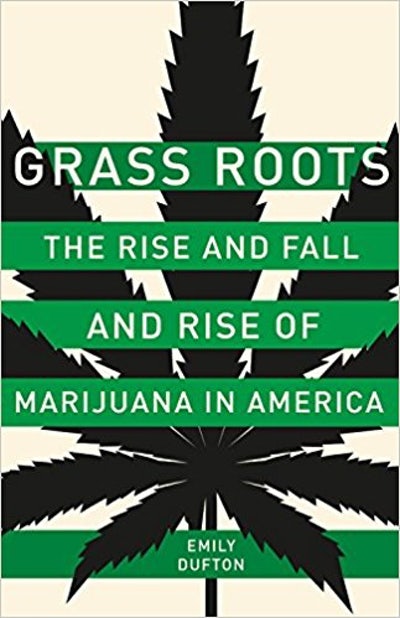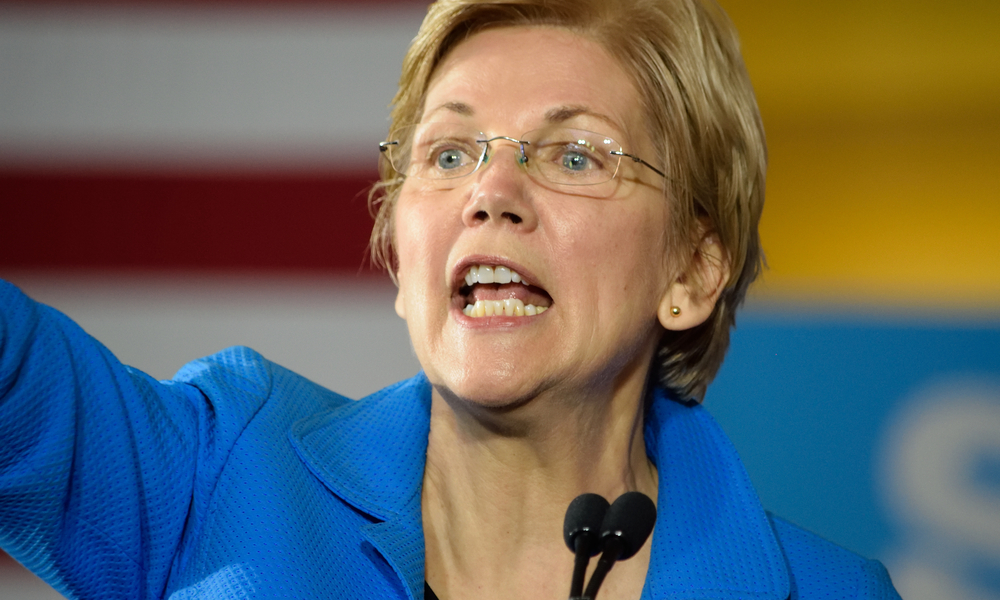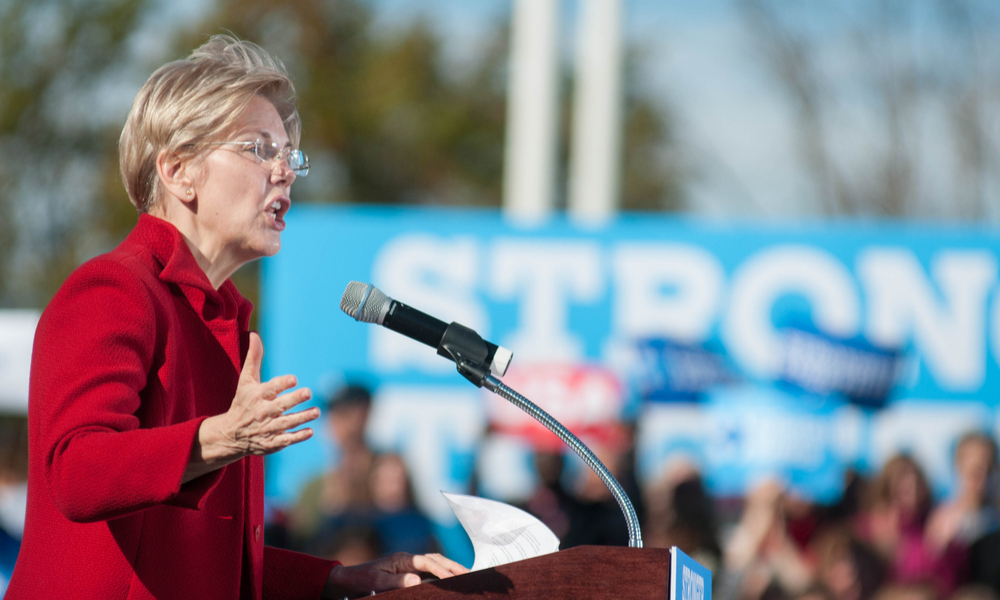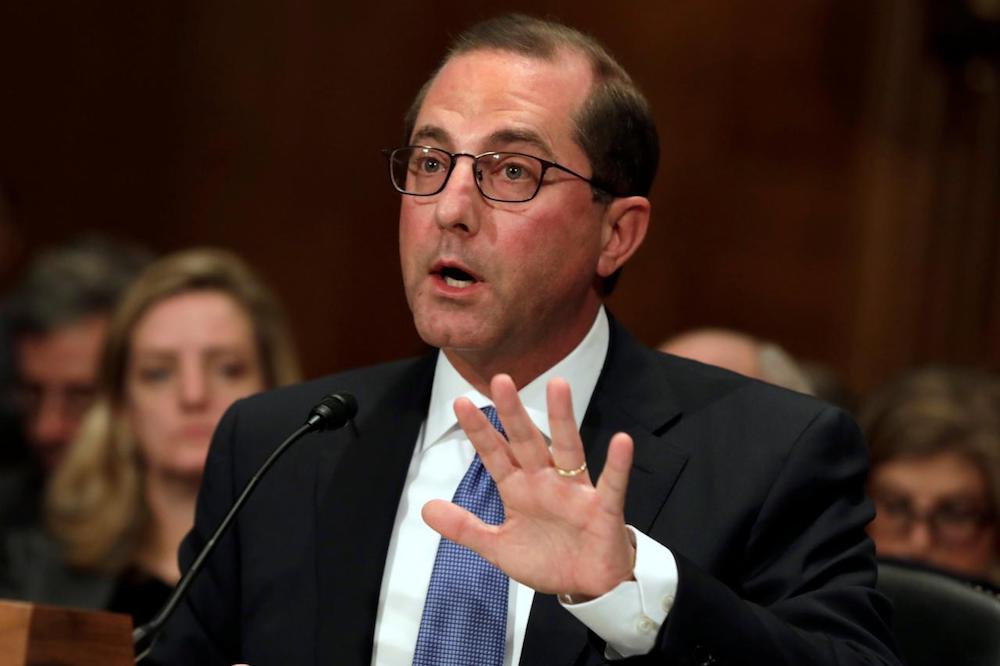Baron23
Well-Known Member
Pot initiatives: Predicting the next 15 states to legalize marijuana
A record high 64% of Americans support legalizing marijuana for recreational use, according to a 2017 Gallup Poll. Support for legalization is rooted in changing perceptions of the drug’s potential harm, as well as the prospect of hundreds of millions of dollars in marijuana sales and excise tax revenue for state governments.
The growing acceptance of marijuana among Americans has also been reflected in the ballot box. Currently, eight states and Washington, D.C., have legalized recreational marijuana. The eight states are Alaska, California, Colorado, Massachusetts, Maine, Nevada, Oregon and Washington.
Pro-pot initiatives passed in eight of the nine states in which they made it to the ballot in November 2016. Voters in Arkansas, Florida, Montana and North Dakota approved or expanded medical marijuana laws in their states. In Maine, Massachusetts, Nevada and California, voters approved recreational pot. Only Arizona’s push for full legalization failed.
A record high 64% of Americans support legalizing marijuana for recreational use, according to a 2017 Gallup Poll. Support for legalization is rooted in changing perceptions of the drug's potential harm, as well as the prospect of hundreds of millions of dollars in marijuana sales and excise tax revenue for state governments. Ed Andrieski, AP
In the states where it has been legalized, the new industry is contributing to the various states' economies. Marijuana Business Daily puts the number of jobs created by cannabis-related companies at between 100,000 and 150,000. New Frontier Data estimated employment within the industry may reach 300,000 by 2020.
All four states that legalized recreational marijuana in 2016 made 24/7 Wall St.’s list of the next states to legalize pot that same year.
Despite widespread acceptance of the drug, only about 21% of the U.S. population live in states or districts that have legalized recreational pot. In all likelihood, the share will only grow in the coming years.
Though every state to legalize pot so far has done so through ballot initiatives, going forward, states have a variety of options for making pot legal. Predicting which states will be next to legalize requires weighing a range of legal circumstances and cultural conditions. 24/7 Wall St. reviewed marijuana usage rates, existing marijuana laws, and legislative processes in each state to identify the states most likely to legalize pot next.
1. Arizona
Currently, state residents with dispensary cards suffering from a range of conditions, including PTSD, severe nausea, and cancer, can legally posses as much as 2.5 ounces of marijuana for medicinal use.
2. Arkansas
Still, the state has several potential hurdles to clear before full legalization is reality. Many voters in Arkansas may not be open to the idea of legalization, as just an estimated 11.3% of state adults 18 and older have used marijuana in the past year, a smaller share than in most states. Additionally, those caught in possession of any amount without doctor approval can face a misdemeanor, one year in jail, and a $2,500 fine.
3. Connecticut
Connecticut is one several states to have decriminalized marijuana possession. First time offenders caught with less half an ounce face no more than a $150 fine. For repeat offenders, fines can be as high as $500, but still, possession of a small amount carries no criminal charges.
4. Delaware
Marijuana legalization appears to have the support of voters in the state. A 2016 poll conducted by the University of Delaware found that 61% of state residents support legalization. Changing attitudes have been a long time in the making. In 2002, 41.4% of state residents 26 and older perceived great risk from monthly marijuana use. As of 2014, only 28.9% of state adults see monthly pot use as very risky.
5. Florida
Despite the recent constitutional amendment that suggests growing acceptance of marijuana use in Florida, recreational users in the state still face serious legal consequences. Those caught with 20 grams or less of the drug face misdemeanor charges, up to a year in jail, and fines as high as $1,000. Still, as a ballot initiative state, legalization could happen much faster in Florida than in states that do not allow voter-sponsored ballot initiatives.
6. Illinois
Currently, possession of certain amounts of marijuana for nonmedical purposes is decriminalized in Illinois. Those caught with 10 grams or less will not face more than a $200 fine. State residents with a range of conditions, including cancer, glaucoma, and Parkinson’s disease, can qualify for a medical cannabis card.
7. Maryland
The state has already taken a more relaxed attitude toward marijuana. Maryland allows medical marijuana use, it decriminalized possession of under 10 grams, and capped the fine for having a small amount at $100. But state legislators are still hesitant to institute full legalization. A recent legalization bill fell short of passing. The state legislature will not meet again until 2018.
8. Michigan
Currently, Michigan residents without a medical card can face a $2,000 fine and jail time for possessing small amounts of marijuana.
9. Minnesota
Current Gov. Mark Dayton opposes legalization, even though he is part of the often pot-friendly Democratic party. However, Dayton is not seeking reelection in 2018, and most Democratic gubernatorial candidates announced they support marijuana legalization.
10. Montana
As is the case nationwide, Montana residents seem to become more accepting of marijuana use. An estimated 36.2% of adults 26 and older in the state perceived great risk from monthly marijuana use in 2002. As of 2014, only 26.6% of the same age group saw monthly marijuana use as inherently harmful.
11. New Hampshire
Some 17.1% of adults in the state used marijuana in the past year, the ninth-highest share of all states. The relatively high share of pot users could be part of the reason why legalization is so popular in the Granite State. A University of New Hampshire poll found 68% of residents support legalizing marijuana for recreational use. That is more support than any single elected official in the state has.
12. New York
New York already has a medical marijuana program and a significant amount of users overall. The state is home to more than 2.3 million adults who used pot in the past year. Pot smokers caught with the drug in the Empire State have little to fear in the way of legal repercussions. First time offenders caught with 25 grams or less face a $100 fine, while second time offenders are slapped with a $200 fine.
13. Ohio
Ohio is in the midst of implementing its medical marijuana program. Currently, recreational users in the state caught with any amount less than 100 grams only face a $150 fine and no jail time.
14. Rhode Island
The bill had much support in the Rhode Island legislature, with about a third of the House of Representatives co-sponsoring the bill. Some 18.7% of Rhode Island adults used pot in the past year, more than 5 percentage points ahead of the national share of adult pot users. High usage rates can often suggest a more tolerant cultural stance towards pot.
15. Vermont
It is not a surprise that politicians in Vermont would be on board with marijuana legalization given how popular it is in the state. Some 15% of Vermont adults used marijuana in the past month, and more than 20% used it in the past year. Those figures were both in the top three among states.
To identify the states most likely to legalize recreational marijuana use in the coming years, 24/7 Wall St. reviewed existing marijuana laws and usage rates in every state. Only states where medical marijuana use is legal were considered. For more on how the list was generated, click here.
A record high 64% of Americans support legalizing marijuana for recreational use, according to a 2017 Gallup Poll. Support for legalization is rooted in changing perceptions of the drug’s potential harm, as well as the prospect of hundreds of millions of dollars in marijuana sales and excise tax revenue for state governments.
The growing acceptance of marijuana among Americans has also been reflected in the ballot box. Currently, eight states and Washington, D.C., have legalized recreational marijuana. The eight states are Alaska, California, Colorado, Massachusetts, Maine, Nevada, Oregon and Washington.
Pro-pot initiatives passed in eight of the nine states in which they made it to the ballot in November 2016. Voters in Arkansas, Florida, Montana and North Dakota approved or expanded medical marijuana laws in their states. In Maine, Massachusetts, Nevada and California, voters approved recreational pot. Only Arizona’s push for full legalization failed.
A record high 64% of Americans support legalizing marijuana for recreational use, according to a 2017 Gallup Poll. Support for legalization is rooted in changing perceptions of the drug's potential harm, as well as the prospect of hundreds of millions of dollars in marijuana sales and excise tax revenue for state governments. Ed Andrieski, AP
In the states where it has been legalized, the new industry is contributing to the various states' economies. Marijuana Business Daily puts the number of jobs created by cannabis-related companies at between 100,000 and 150,000. New Frontier Data estimated employment within the industry may reach 300,000 by 2020.
All four states that legalized recreational marijuana in 2016 made 24/7 Wall St.’s list of the next states to legalize pot that same year.
Despite widespread acceptance of the drug, only about 21% of the U.S. population live in states or districts that have legalized recreational pot. In all likelihood, the share will only grow in the coming years.
Though every state to legalize pot so far has done so through ballot initiatives, going forward, states have a variety of options for making pot legal. Predicting which states will be next to legalize requires weighing a range of legal circumstances and cultural conditions. 24/7 Wall St. reviewed marijuana usage rates, existing marijuana laws, and legislative processes in each state to identify the states most likely to legalize pot next.
1. Arizona
- Possession decriminalized: No
- Amount decriminalized: N/A
- Max. fine for less than 2 lbs.: $150,000
- Annual adult usage: 12.7% (19th highest)
Currently, state residents with dispensary cards suffering from a range of conditions, including PTSD, severe nausea, and cancer, can legally posses as much as 2.5 ounces of marijuana for medicinal use.
2. Arkansas
- Possession decriminalized: No
- Amount decriminalized: N/A
- Max. fine for less than 4 oz.: $2,500
- Annual adult usage: 11.3% (16th lowest)
Still, the state has several potential hurdles to clear before full legalization is reality. Many voters in Arkansas may not be open to the idea of legalization, as just an estimated 11.3% of state adults 18 and older have used marijuana in the past year, a smaller share than in most states. Additionally, those caught in possession of any amount without doctor approval can face a misdemeanor, one year in jail, and a $2,500 fine.
3. Connecticut
- Possession decriminalized: Yes
- Amount decriminalized: Less than 1/2 oz
- Max. fine for less than 1/2 oz: $150
- Annual adult usage: 15.4% (10th highest)
Connecticut is one several states to have decriminalized marijuana possession. First time offenders caught with less half an ounce face no more than a $150 fine. For repeat offenders, fines can be as high as $500, but still, possession of a small amount carries no criminal charges.
4. Delaware
- Possession decriminalized: Yes
- Amount decriminalized: 1 oz. or less
- Max. fine for 1 oz. or less: $100
- Annual adult usage: 12.7% (20th highest)
Marijuana legalization appears to have the support of voters in the state. A 2016 poll conducted by the University of Delaware found that 61% of state residents support legalization. Changing attitudes have been a long time in the making. In 2002, 41.4% of state residents 26 and older perceived great risk from monthly marijuana use. As of 2014, only 28.9% of state adults see monthly pot use as very risky.
5. Florida
- Possession decriminalized: No
- Amount decriminalized: N/A
- Max. fine for 20 g. or less: $1,000
- Annual adult usage: 12.1% (24th lowest)
Despite the recent constitutional amendment that suggests growing acceptance of marijuana use in Florida, recreational users in the state still face serious legal consequences. Those caught with 20 grams or less of the drug face misdemeanor charges, up to a year in jail, and fines as high as $1,000. Still, as a ballot initiative state, legalization could happen much faster in Florida than in states that do not allow voter-sponsored ballot initiatives.
6. Illinois
- Possession decriminalized: Yes
- Amount decriminalized: 10 g. or less
- Max. fine for 10 g. or less: $200
- Annual adult usage: 12.3% (24th highest)
Currently, possession of certain amounts of marijuana for nonmedical purposes is decriminalized in Illinois. Those caught with 10 grams or less will not face more than a $200 fine. State residents with a range of conditions, including cancer, glaucoma, and Parkinson’s disease, can qualify for a medical cannabis card.
7. Maryland
- Possession decriminalized: Yes
- Amount decriminalized: Less than 10 g.
- Max. fine for less than 10 g.: $100
- Annual adult usage: 14.8% (15th highest)
The state has already taken a more relaxed attitude toward marijuana. Maryland allows medical marijuana use, it decriminalized possession of under 10 grams, and capped the fine for having a small amount at $100. But state legislators are still hesitant to institute full legalization. A recent legalization bill fell short of passing. The state legislature will not meet again until 2018.
8. Michigan
- Possession decriminalized: No
- Amount decriminalized: N/A
- Max. fine for any amount: $2,000
- Annual adult usage: 15.0% (13th highest)
Currently, Michigan residents without a medical card can face a $2,000 fine and jail time for possessing small amounts of marijuana.
9. Minnesota
- Possession decriminalized: Yes
- Amount decriminalized: 42.5 g. or less
- Max. fine for 42.5 g. or less: $200
- Annual adult usage: 12.6% (21st highest)
Current Gov. Mark Dayton opposes legalization, even though he is part of the often pot-friendly Democratic party. However, Dayton is not seeking reelection in 2018, and most Democratic gubernatorial candidates announced they support marijuana legalization.
10. Montana
- Possession decriminalized: No
- Amount decriminalized: N/A
- Max. fine for 60 g, or less: $500
- Annual adult usage: 15.1% (11th highest)
As is the case nationwide, Montana residents seem to become more accepting of marijuana use. An estimated 36.2% of adults 26 and older in the state perceived great risk from monthly marijuana use in 2002. As of 2014, only 26.6% of the same age group saw monthly marijuana use as inherently harmful.
11. New Hampshire
- Possession decriminalized: Yes
- Amount decriminalized: 3/4 oz. or less
- Max. fine for 3/4 oz. or less: $100
- Annual adult usage: 17.1% (9th highest)
Some 17.1% of adults in the state used marijuana in the past year, the ninth-highest share of all states. The relatively high share of pot users could be part of the reason why legalization is so popular in the Granite State. A University of New Hampshire poll found 68% of residents support legalizing marijuana for recreational use. That is more support than any single elected official in the state has.
12. New York
- Possession decriminalized: Yes
- Amount decriminalized: 25 g. or less
- Max. fine for 25 g. or less: $100
- Annual adult usage: 15.0% (14th highest)
New York already has a medical marijuana program and a significant amount of users overall. The state is home to more than 2.3 million adults who used pot in the past year. Pot smokers caught with the drug in the Empire State have little to fear in the way of legal repercussions. First time offenders caught with 25 grams or less face a $100 fine, while second time offenders are slapped with a $200 fine.
13. Ohio
- Possession decriminalized: Yes
- Amount decriminalized: Less than 100 g.
- Max. fine for less than 100 g.: $150
- Annual adult usage: 12.0% (21st lowest)
Ohio is in the midst of implementing its medical marijuana program. Currently, recreational users in the state caught with any amount less than 100 grams only face a $150 fine and no jail time.
14. Rhode Island
- Possession decriminalized: Yes
- Amount decriminalized: Less than 1 oz.
- Max. fine for less than 1 oz.: $150
- Annual adult usage: 18.7% (6th highest)
The bill had much support in the Rhode Island legislature, with about a third of the House of Representatives co-sponsoring the bill. Some 18.7% of Rhode Island adults used pot in the past year, more than 5 percentage points ahead of the national share of adult pot users. High usage rates can often suggest a more tolerant cultural stance towards pot.
15. Vermont
- Possession decriminalized: Yes
- Amount decriminalized: 1 oz. or less
- Max. fine for 1 oz. or less: $200
- Annual adult usage: 20.6% (3rd highest)
It is not a surprise that politicians in Vermont would be on board with marijuana legalization given how popular it is in the state. Some 15% of Vermont adults used marijuana in the past month, and more than 20% used it in the past year. Those figures were both in the top three among states.
To identify the states most likely to legalize recreational marijuana use in the coming years, 24/7 Wall St. reviewed existing marijuana laws and usage rates in every state. Only states where medical marijuana use is legal were considered. For more on how the list was generated, click here.






